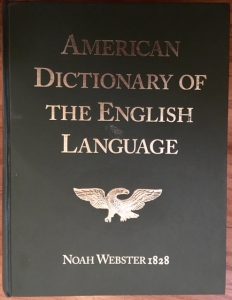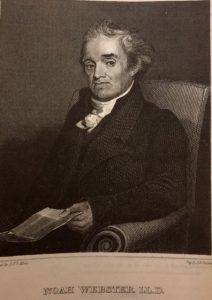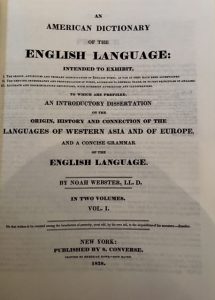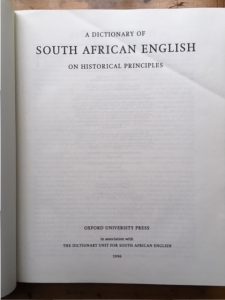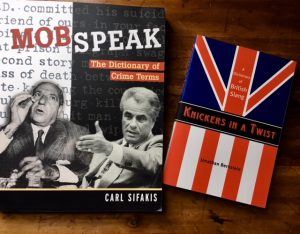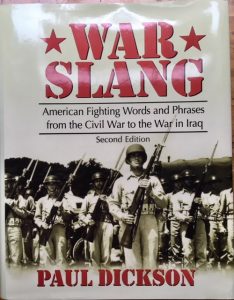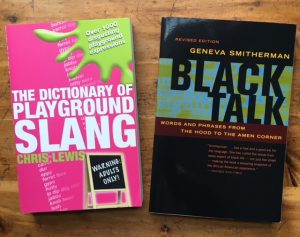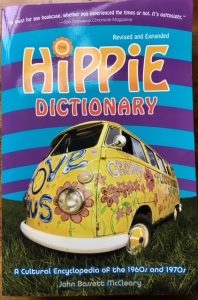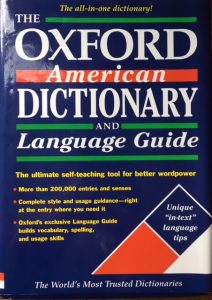As many of you know, I collect dictionaries. This facsimile edition of the first American Dictionary of the English Language arrived yesterday and I’ve been enjoying it for hours. Who would have thought there could be 58 definitions of pass?
According to the preface, Webster was being urged to compile such a volume as early as 1783. He was too busy to even think about it till 1801. The work became ever more ambitious, as you can see from the title page.
And the rest is history. Webster’s became almost synonymous with dictionary. He predated the Oxford English Dictionary (1933) by more than a hundred years, and I would claim his scholarship (including historical roots and literary examples) inspired those involved in the OED.
According to Webster, new locations and new governments require the standardization of modified English. Hence, you can also find dictionaries of Australian English, Indian English, etc.
We are not using Webster’s 1828 dictionary today because—ta da!—language evolves. You heard it here first—unless you read Bill Bryson’s Mother Tongue: English and How It Got That Way.

The evolution of language comes not only from changing political needs, but also from science, art, technological advances, etc. While some of these changes primarily affect relatively narrow bands of society, others are more pervasive. Based on the sheer variety of offerings, I would argue that slang is one of the most changeable aspects of language, both universal and specialized.
Slang varies by occupation. I have dictionary of carnival slang, for example, as well as several dealing with war.
And of course language varies by time period and sub-culture.
Much as I love them, I’m afraid hard-copy dictionaries are becoming extinct. The Merriam-Webster Online Dictionary claims to be the best available. Given the rapidity of language evolution, online is probably the only way to keep up.
What’s your newest dictionary? And why do you still have it?
